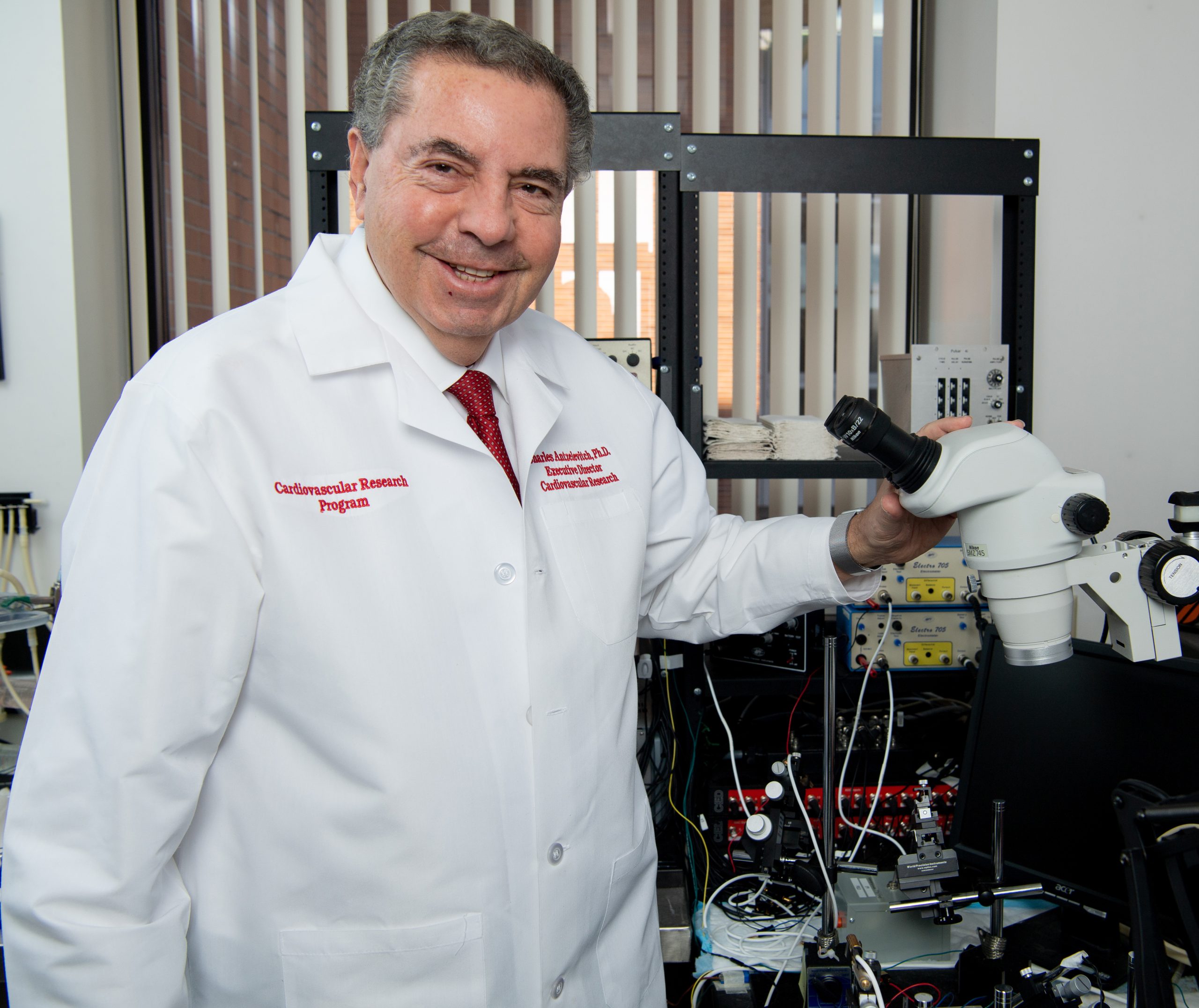The J-wave syndromes (JWSs), consisting of the Brugada (BrS) and Early Repolarization Syndromes (ERS), have presented a challenge to the cardiology community for over two decades. JWSs are inherited cardiac arrhythmia and sudden cardiac death syndromes that share ECG features, clinical outcomes, and risk factors, as well as a common arrhythmic platform related to amplification of the J wave of the ECG. The JWSs have been shown to contribute to sudden cardiac death of young adults as they reach their prime, and in a few cases have been shown to be responsible for sudden infant death syndrome.
Dr. Antzelevitch and his team have been successful in recapitulating many of the ECG and arrhythmic manifestations, particularly of BrS in this whole-heart model, and have demonstrated the therapeutic benefits of acacetin, a naturally occurring flavone. They are working on identification of more potent drugs using molecules with structural similarity to acacetin. These studies have the potential to provide the first major breakthrough in over 20 years for identification of safe and effective agent(s) for JWS. Data generated will provide a unique platform for further development of novel therapies via the identification of efficacious lead compounds. Successful management of these syndromes will close a significant gap in therapeutic armamentarium for individuals at risk for sudden cardiac death. The project, funded by the W. W. Smith Charitable Trust, is also designed to identify novel safe and effective approaches to therapy of these life-threatening syndromes.
Charles Antzelevitch, Ph.D., Lankenau Institute for Medical Research, is working to advance understanding of the mechanisms underlying the development of life-threatening arrhythmias and sudden death. W. W. Smith Charitable Trust Research Project: “Novel Therapies for Life-Threatening Arrhythmia Syndromes”

